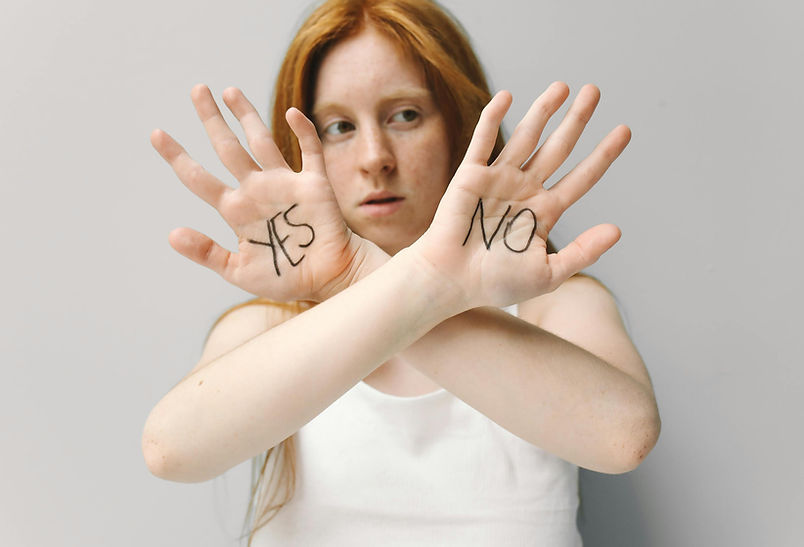The Cost of Saying Yes When You Mean No
by Dr. Katherine Iscoe
1 Oct 2025

We all like to be liked. A smile here, a favour there - it feels harmless. But people-pleasing isn’t just about generosity; it comes at a cost. It is like handing your bank card to someone else and saying, “Go ahead, take what you want.” Except they’re not spending your money, they’re spending your time.
And here’s the kicker: every time you hand over that card, every time you say yes when you really mean no, your balance gets lower. And unlike a real bank account, no one is transferring anything back in.
That’s the real cost of people-pleasing.
The Invisible Bill
At first, the sacrifices seem small - another late night at work, another social plan accepted out of obligation, another problem absorbed that was never ours to solve. But over time, these small concessions form a pattern. And the pattern teaches us something dangerous: that everyone else’s needs should come before our own.
Every unnecessary yes comes with a hidden price. Time is lost, energy is drained, priorities are delayed. What looks like dependability to others often feels like depletion to ourselves.
The hardest part is that this erosion rarely announces itself all at once. It builds gradually. Fatigue, resentment, a sense of invisibility. The quiet question of whether life is being lived on our terms or someone else's.
Why We Keep Saying Yes
It often feels easier to agree than to decline. Agreement avoids conflict, prevents disappointment, and maintains the appearance of being capable and reliable. Yet beneath the surface, another narrative takes hold: that our boundaries are negotiable, that our value is tied to availability, that our voice is less important than approval.
This isn’t kindness. It’s survival at the expense of authenticity.
What Changes Everything
With self-respect, we can set boundaries without guilt, make choices without apology, and show up authentically instead of out of obligation. It reminds us that our capacity isn’t infinite, that declining a request isn’t rejecting a person, and that protecting our energy allows us to give more meaningfully when it truly matters. While confidence may help us find the words, it is self-respect that gives them weight.
Like every habit which builds over time, this one won’t vanish overnight. You steel yourself for a firm no, a compelling reason comes along and suddenly your resolve comes crumbling down. But here’s the thing: it doesn’t have to. The trick is disarmingly simple. Every time you say yes to something new, strike something else off your calendar.
Why This Matters
We live in a culture that celebrates the full calendar and the endless yes. But behind the façade of productivity and generosity, too many are quietly exhausted, carrying the unspoken cost of constant agreement.
Saying no is not selfish, it is necessary. It is the foundation that makes our eventual yes more powerful, more sustainable, and more real.
The cost of saying yes when we mean no is high. But the reward of choosing alignment over approval is higher still: the chance to live with integrity, energy, and a voice that finally feels like our own.
About Dr Katherine Iscoe
Dr Katherine Iscoe is a motivational speaker, author, and advocate for self-respect. Drawing on her experiences overcoming depression, an eating disorder, and self-doubt, she empowers leaders to let
go of imagined judgment, build confidence, and make a bigger impact. Her work focuses on practical, daily strategies to help people live authentically, protect their energy, and lead with integrity.
Lead image by Polina Tankilevitch

